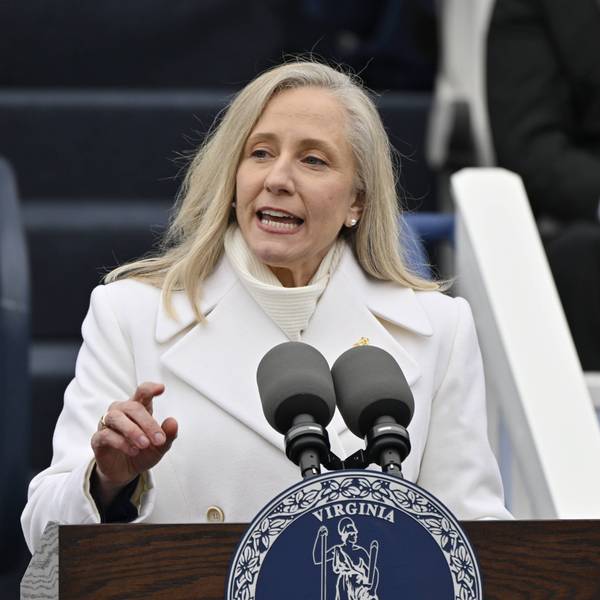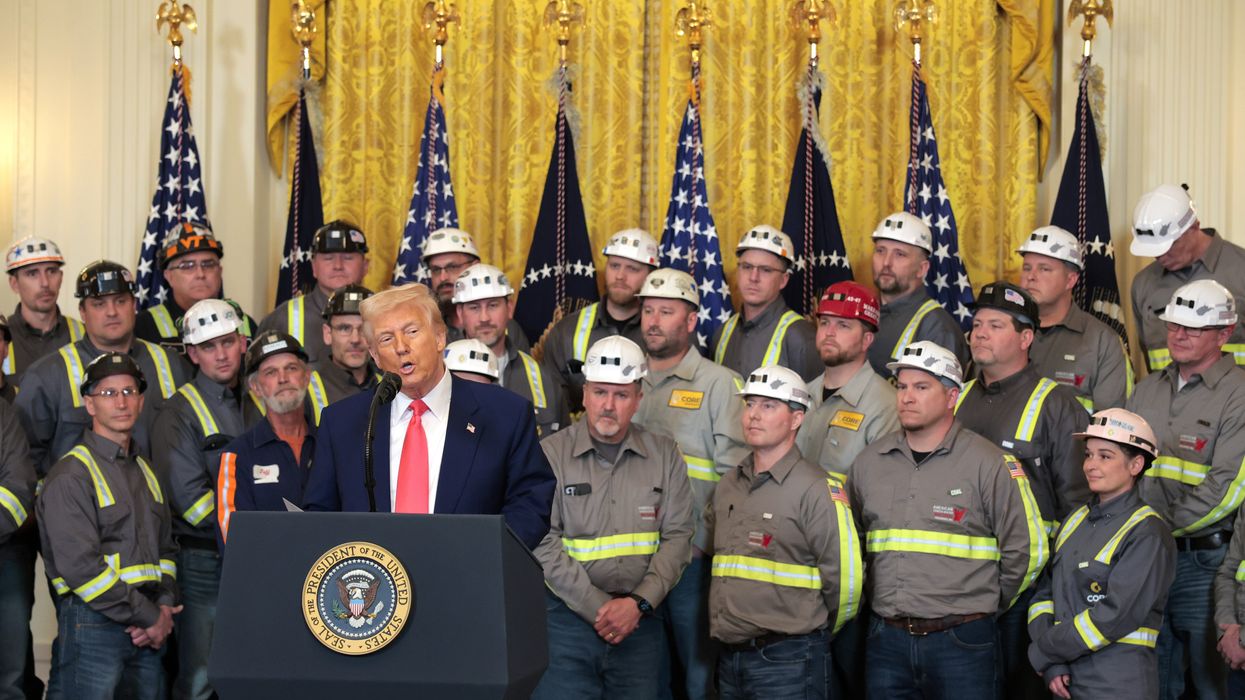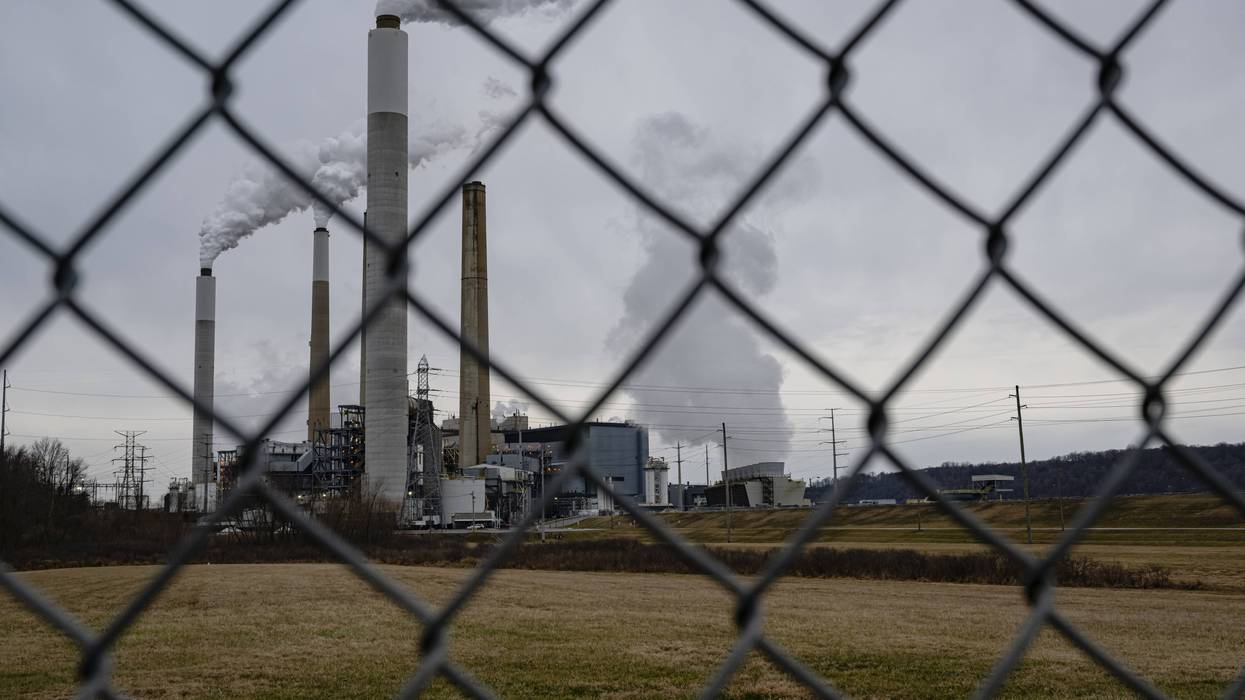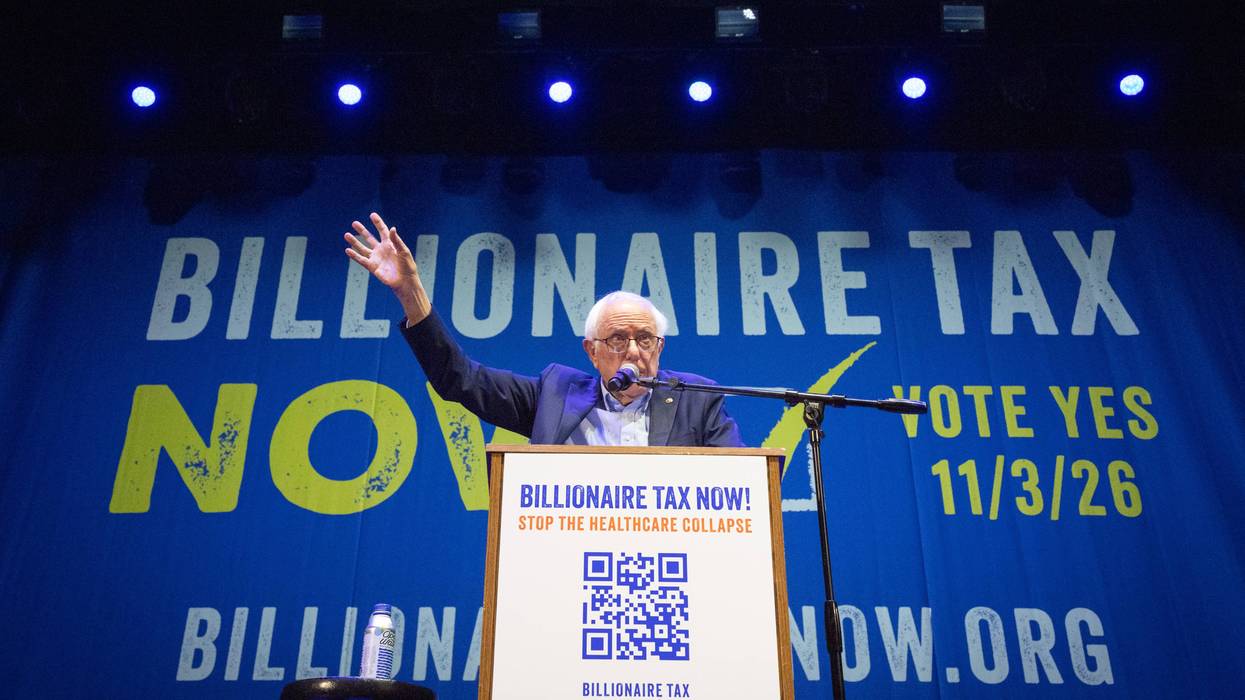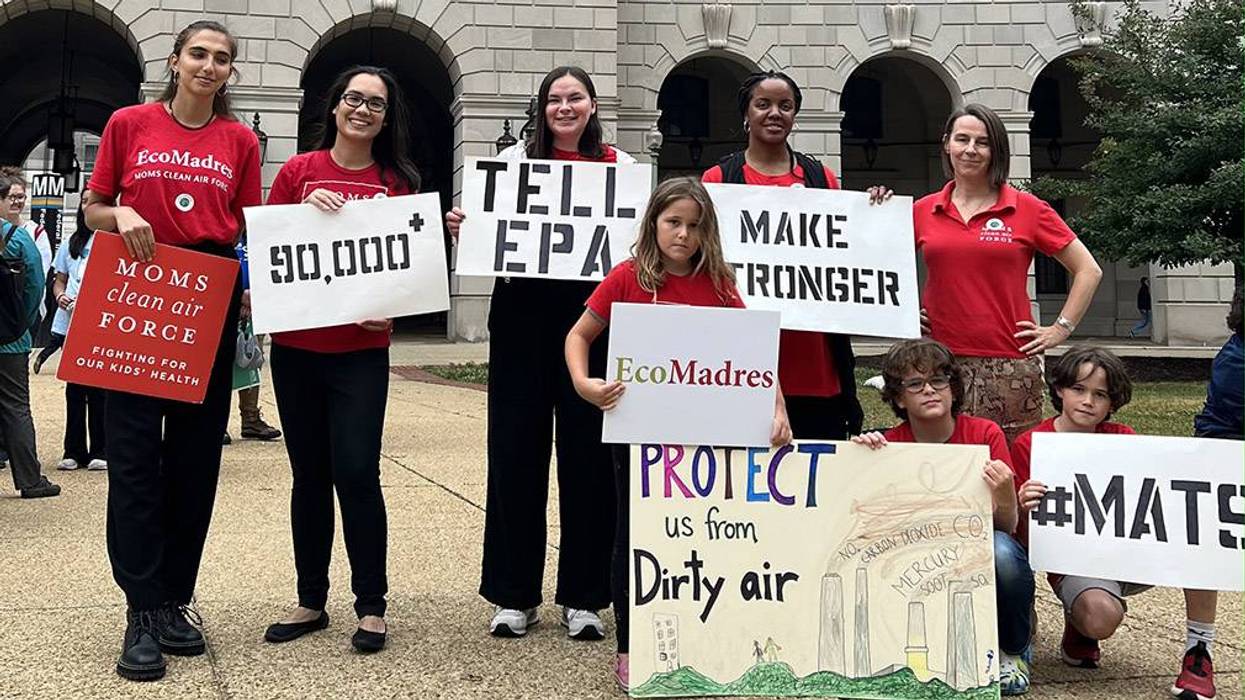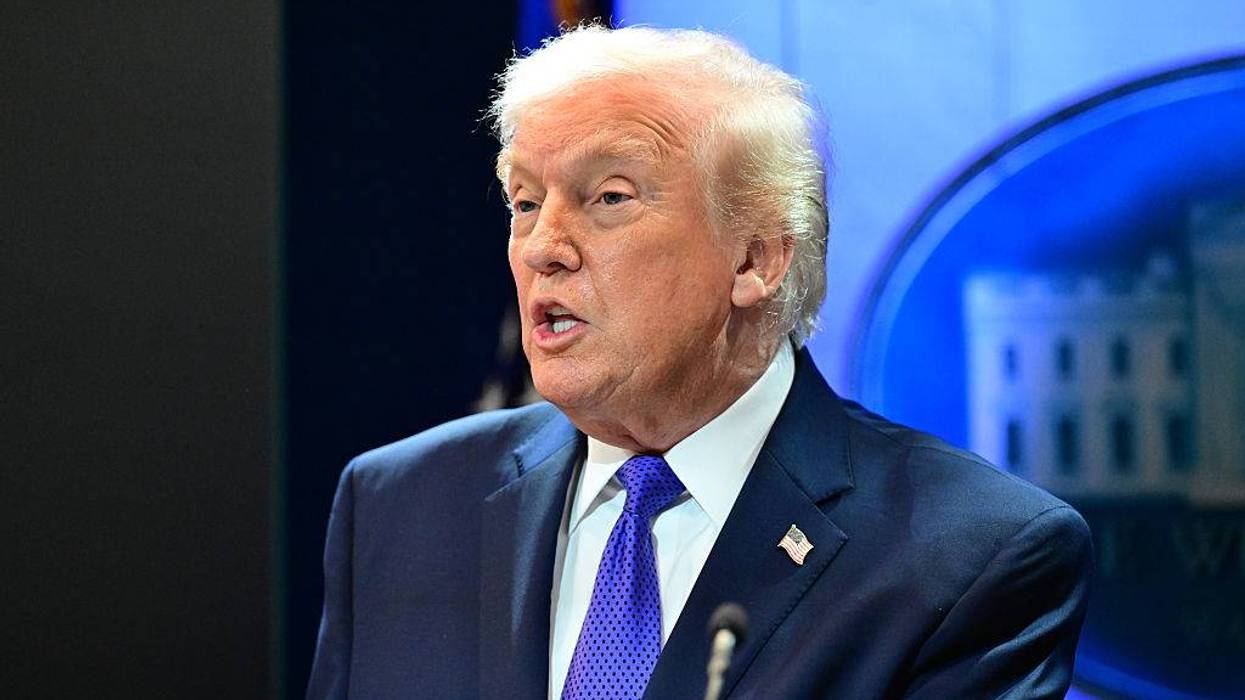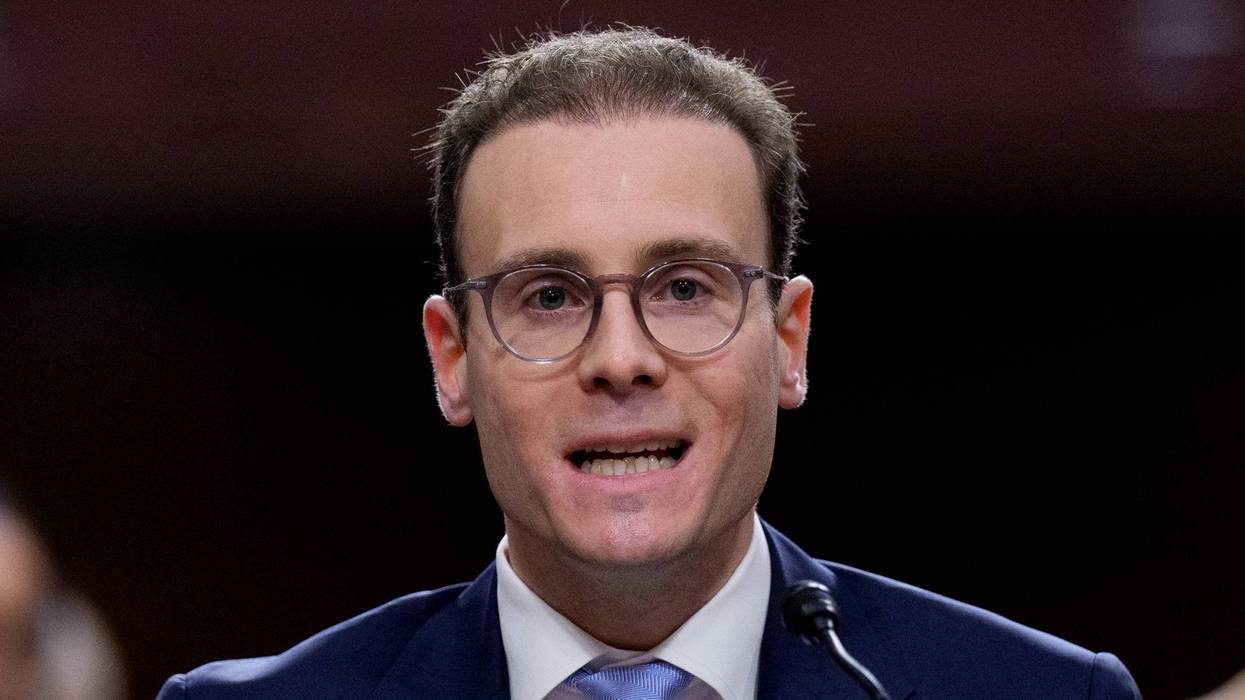Not Our President's Day, thank God, has passed. Along with mattress sales, it was marked by many middle fingers in the air, a typically grotesque message from a tainted White House, and news that a massive, ill-fated, gold-leaf statue of the worst president in history, hilariously dubbed "Don Colossus," remains stranded on its back in an Ohio warehouse as its creator and a bunch of crooked crypto bros - surprise! no surprise! - back-stab and bicker about money. May he rot there, please.
The general sentiment around our latest National Holiday was best summed up by one post: "Happy Presidents Day. Except the current one. Fuck that guy." He didn't win any points by marking the day spewing the usual hateful vulgarity "in the creepiest way possible," declaring in a vengeful post, "They came after the wrong man. I was the hunted. Now I'm the hunter." He is also, of course, "one sick dude," old, dazed and confused with unprecedented low approval ratings, maybe because all he does is lie, bully, bribe, be bribed and in his gluttonous delusion insist, “We have the greatest economy actually ever in history” as he rips us off for billions by selling his name for hopeful airports and don't forget their trashy "clothing, handbags, luggage, jewelry, watches, and tie clips." Democracy dies in tie clips.
Now, in one final, loutish indignity, he - or at least a gaudy doppelgänger - is being held hostage in Zanesville OH for a $92,000 payment, having been both delayed and downgraded from a planned prime spot at his inauguration to his Doral golf course - specifically, the tenth hole. The statue saga began when sculptor Alan Cottrill, who's made about 400 figures on commission, including bronzes of 16 past presidents and a Thomas Edison now in the Capitol, got a call from an unknown Las Vegas sculptor asking if he'd like to make a statue commemorating Trump's brave ear being allegedly grazed in Butler, Pennsylvania - an "iconic" 2024 moment a consortium of 16 cryptocurrency enthusiasts deemed "a turning point in world history," also a cool chance to "show our appreciation of his embrace of crypto." LOL.
The original plan was to unveil a bronze, 15-foot, 2,400-pound Don Colossus, installed on a 6,000-pound concrete base, at Trump’s inauguration, positing it to loom over the National Mall. The roughly month-long timeline was tight - Cottrill had to work "crazy fast" - and he was to be paid $300,000. There were tough moments. When he replicated Trump's "turkey neck," the crypto boys were "aghast" and requested "a more flattering, less realistic look." The hardest part was the hair: "Holy shmoly! You can't sculpt and cast something that is....wispy." Still, he toiled away at it, and met the deadline. The night before one of the crypto clutch called: Temps had plunged, the Secret Service had moved Inauguration Day inside where a two-story rapist might pose a danger, and the new plan was to install Don later at his Doral resort.
The statue malingered in a warehouse in DC, then in another in Pittsburgh. Cottrill got paid over time, but "every payment arrived weeks late." In November, he approached his patrons with a shiny new idea: The bronze was burnished to look gold, but what if they coated it in Trump's beloved gold leaf? The proposal was "like a glass of water to a person dying of thirst - Immediately everybody jumped on board." But finding someone to work on a giant Trump statue proved tough; several declined the job "because of the subject matter" before someone agreed to slather it in a layer of 23.75-carat gold leaf. A photo was sent to the felon, who loved it - "Wow, it's so bright and beautiful" - a plan was formed to install the pedestal at "a juicy spot" near three palm trees at the 10th hole, and the crypto investors began "actively looking” for a launch date.
But Cottrill suddenly charged the crypto guys - who include Dustin Stockton, a GOP strategist investigated by federal agents for the "We Build The Wall" fraud Steve Bannon did time for - with copyright infringement, arguing they'd gone behind his back for months to promote their $PATRIOT cryptocurrency while marketing the statue: "That was their play all along." Instantly, the deal got bogged down in the volatile world of crypto, a meme coin only worth what current speculation makes of it; things got really messy when the gluttonous Trump, smelling money, launched his own $TRUMP coin days before his inauguration, hammering the $PATRIOT value before itself predictably tanking to over 95% below its peak. Still, and despite charges of massive conflict of interest, Trump has reportedly raked in $1.4 billion from this crap.
Meanwhile, Don Colossus is being held hostage in "financial purgatory" by Cottrill, who claims the crypto guys are both ripping him off and refusing to fork up their final payment. "They keep saying, 'Oh don’t worry Alan, we’ll pay you, we’ll pay you,' but actually they've been illegally infringing on the copyright of my original art right up to the present day." They're also continuing a bizarre social media campaign, posting images of the pedestal - all they have - with promos for their meme coin. "The dream is alive and well," they proclaim. "What the president has in store for the $PATRIOT community and his inner circle for this unveiling will surely be spectacular!" They say they hope to offer Trump one of Cottrill's earlier miniature versions, coated in the same gold finish; they'd love to have it placed in the Oval Bordello, along with all its trashy drek.
The crypto cartel argue they'll pay their final installment before Don "leaves for Doral," and Cottrill is "trying to squeeze us for it." But Cottrill says he already went to Doral a few weeks ago to install the base; he brought along a 12-inch version to scope out the site - "It was the only thing I could fit in my hand luggage" - and a landscape architect dug up and re-positioned the palm trees just so. "The gold leaf in the Florida sun - it’s going to be brilliant," he pledges. "But what they owe me is $91,200, and it's not leaving until they pay me." For all the aggravation, Cottrill says he's enjoyed working on the project. But it's taken up a lot of space in his studio for a long time, and now, "I'd like to get it the hell out of here." Many, many Americans can relate.





